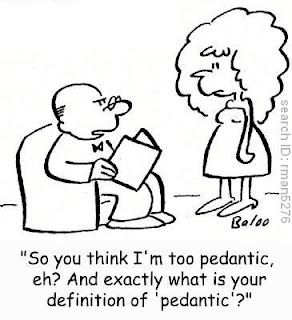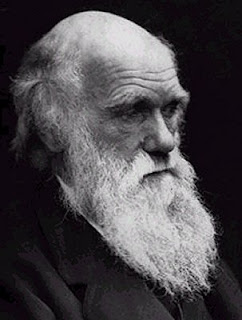
There are two sorts of pedants: those who are aware that they are are pedants, and those that aren’t. The former - the conscious pedant - is a harmless beast. He’s taken on board the essential triviality of his concerns: the world at large is either unaware of the whole issue of ‘correct usage ’ which so exercises him, or knows that there are more important things to worry about. (Or, as emended by the pedant, ‘about which to worry’.) Knowing himself, the conscious pedant uses his foible as a source of mirth. The unconscious pedant, however, is a humourless individual, who uses his knowledge to bolster his feeling of superiority and sense of self-importance, oblivious of the fact that in so doing he only succeeds in making himself look a pretentious tosser.
Today’s Observer contained examples of both sorts of pedantry: a witty article by Euan Ferguson (Man your apostrophes, my friends, and support the pedants' revolt) and a reader’s pompous letter reproduced below:
The big issue: The Kercher murder. The persecution of Amanda Knox goes on
While I share Barbara Ellen's concerns that the murder victim Meredith Kercher seems to have been forgotten by the press reporting of the trial in Perugia ("Meredith, not Knox, deserves our thoughts", Opinion, last week), it is a pity she accuses Amanda Knox of "flowery oratory" in her final statement to the court using a sloppy translation.
"Ho paura di avere una maschera di assassina forzata sulla mia pelle" means she doesn't want to be branded a murderer, not to be "given the mask of the assassin". Having watched the whole speech in which she not only thanked her friends and family for their support but even acknowledged the job her accusers had to do, it certainly did not "sound like some ham mangling Shakespeare".
My impression was of watching an innocent young woman, who'd already spent two long years in a foreign jail, feeling vulnerable but hoping she would receive a fair verdict – and judging from the more balanced reporting elsewhere in your paper, we may yet see the guilty verdict overturned on appeal.
Sue Newte
London SE7
The opening sentence’s subordinate adverbial clause of concession, as we pedants put it, makes one’s hackles rise. Just as one knows ‘While I’m not anti-semitic/homophobic/racist, some of my best friends are Jews/gay/black, but …’ is always the prelude to some disgusting piece of prejudice, what follows the Newte’s opening remark demonstrates that she does not share Barbara Ellen’s concerns at all. Her ‘impression’ that Amanda Knox is innocent outweighs the verdict of the court.
But the real reason for the letter is her desire to demonstrate that her command of Italian is better than Barbara Ellen’s. It is not. ‘Given the mask of the assassin’, one slight quibble aside, is a literal not a ‘sloppy’ translation. Whilst it’s usual to translate assassina as ‘murderess’, a pedant should know that the English word ‘assassin’ simply means ‘murderer’. It’s only contemporary usage - and when has that carried any weight with the stickler for ‘correctness’ - which has conflated its meaning with ‘hired assassin’ - i.e. someone who carries out a killing on behalf of a political or religious idea, or another individual or organisation. As Barbara Ellen says, the translation has preserved the floweriness of the original. A straightforward wish not to be branded might be expressed as: ‘Ho paura d’essere bollata’ or ‘d’essere stigmatizzata’. The same wish expressed figuratively might be ‘Non mi piace aver la parte d’assassina imporre a me’. Only a ‘ham mangling Shakespeare’ would complain of having a murderess’s mask forced upon herself. The Newte is confusing translating the idiom of one language into its equivalent in another (e.g. ‘poppet’ not ‘cauliflower’ when choufleur is used as an endearment) with preserving the original’s register. To translate Knox’s statement as ‘branded as a murderer’ is as inadequate as flatly translating la Serenissima as ‘Venice’, The Smoke as ‘Londra’, or some twerpette writing to the Observer as ‘la signora Newte’.
That’s better: now I’m feeling superior and a lot more self-important - or would be if anyone read this blog!
